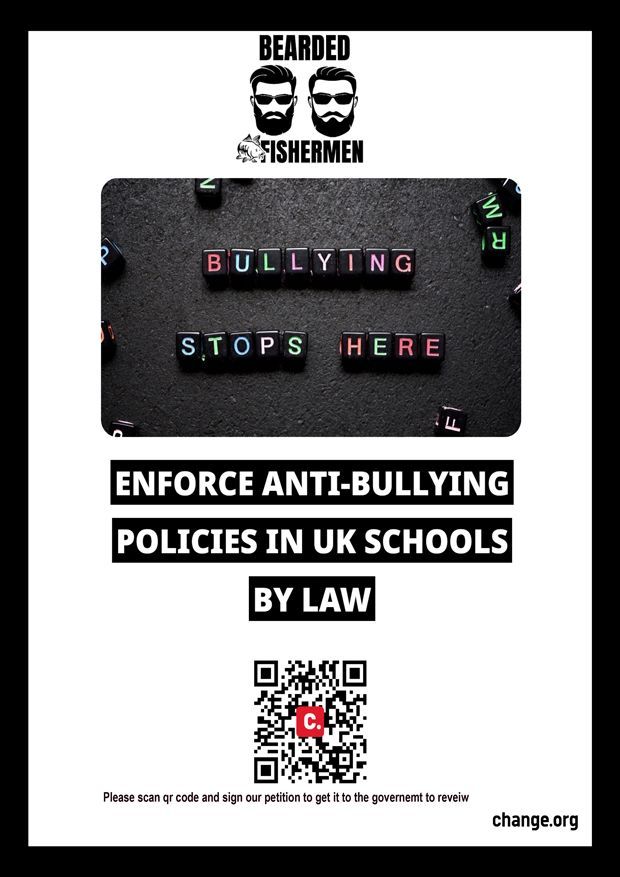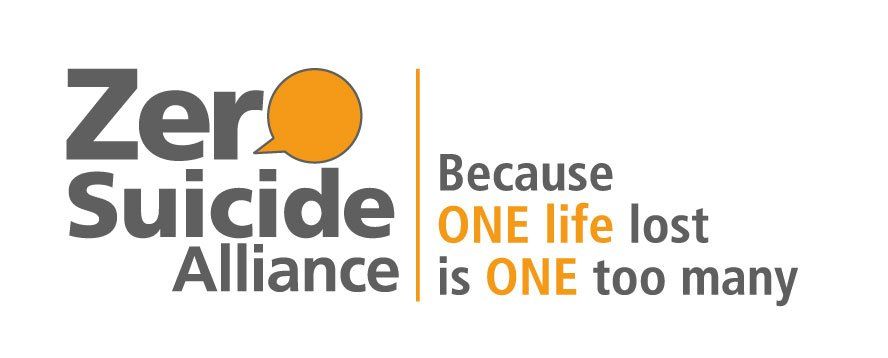
Anti-Bullying Campaign 2026
we are launching a 24/7 Anti-Bullying Support Campaign designed to protect children who are experiencing bullying and at risk of severe emotional harm.
Every week, we speak to young people who are frightened, isolated, and struggling to cope. Many of them feel they have no one to turn to. Some are in such deep distress that they have considered ending their own lives. Bullying is not “just part of growing up” — it is a serious safeguarding issue that can escalate into long-term trauma, absence from school, self-harm, and tragedy.
What We Are Doing
To address this urgent need, the Bearded Fishermen Charity is launching a dedicated 24/7 anti-bullying helpline. This will include:
- A Freefone number, accessible to any child who needs help
- Trained call takers, experienced in supporting young people in distress
- Immediate emotional support, guidance, and safety planning
- Specialist intervention for children feeling suicidal or at risk
- Signposting to schools, parents, and appropriate safeguarding services
- Completely confidential support, giving children a safe space to talk
Our goal is simple:
No child who is being bullied should ever feel alone, unheard, or pushed to breaking point.
Why This Service Is Needed
Bullying is one of the leading causes of mental health crises in children. It affects confidence, attendance, academic performance, and emotional wellbeing. With social media and online bullying on the rise, many young people no longer feel safe at school — or even at home.
Children often do not tell parents or teachers about what they are experiencing. They feel ashamed, scared, or worried about making things worse. Having a 24/7 independent support line gives them a trusted, safe, non-judgmental place to reach out for help.
This service has the potential to prevent self-harm, reduce crisis situations, and save young lives.
What We Need Funding For
To operate this support line effectively and safely, we require funding for:
- Staffing and training of specialist call takers
- Maintaining the 24/7 helpline and Freefone service
- Providing safeguarding resources and escalation processes
- Outreach to schools, parents, and community groups
- Advertising and awareness to ensure every child knows we are here for them
Any financial support you can offer will directly strengthen the safety net for vulnerable children in our community.
About Us
The Bearded Fishermen Charity has built a strong reputation for supporting people in crisis. From crisis response work to the operation of mental health hubs in Gainsborough and Drax Power Station, our mission has always been to ensure that no one faces their darkest moments alone.
Our Anti-Bullying Campaign is a natural and necessary extension of that mission.
How You Can Help
We kindly request funding or partnership support to help us launch and maintain this essential service. Together, we can:
- Reduce the emotional harm caused by bullying
- Provide immediate support to children in crisis
- Prevent suicides
- Build safer, more compassionate communities
We would welcome the opportunity to discuss this project further and share our plans in more detail.
Thank you for your time, your compassion, and your commitment to supporting vulnerable children.
The Anti-Bullying Campaign will add a new support number 0300 102 4514 to our call centre and an additional 4 lines to help with the calls, taking on and training more volunteers to manage the lines and get trained in anti-bullying to be able to support and help these children when they need to talk.
We have a page made for people to sign that will get it reviewed in the house of commons by parliament once we have reached 100,000 signatures. We need this sharing and signed by as many people we can. Please share this link on your emails and social media and get friends and family to join in the campaign too.
Here is the link to get as many signature's as possible - Click Here
Facebook page for the Anti Bullying Campaign
Here are the links to our fundraising page and to our Stop Bullying - Prevent Suicide T-Shirts (All proceeds go to the charity)
Anti-Bullying Campaign Donation Page
Stop Bullying-Prevent Suicide Clothing store
There is a social media poster you can share for the signature's page below.

Why is bullying on the increase in schools?
The Schools Minister and Education Department say ‘It is the responsibility of each individual Head of School to decide how to manage bullying in their school. It is up to the schools to decide how to govern and manage bullying.
The National Bullying Helpline has this in writing. Allowing a Head of School to unilaterally manage the process is a recipe for disaster, particularly where a school is in self-preservation mode and wants to contain a problem in order to protect their reputation. Presently, it is up to the School to unilaterally decide how to deal with bullying in their particular school. Surely, the School is in a conflict of interest. They are focussed on their image and their Ofsted results, so is it right to rely on a Head of School to resolve an allegation of bullying in their School.
Currently, there is far too much focus within our schools on image and Ofsted reviews and not enough focus on finding a solution to address the problem. Presently bullying statistics do not appear to be properly documented and recording in schools. Formal investigations are not being carried out.
- Schools will likely disagree with this statement. If they disagree, they need to be more open and transparent about their in-house processes. They should minute meetings with parents and they should report incidents to Ofsted.
- Meanwhile, parents continue to say that the school will not work with them and will not properly investigate a complaint.
Given that child suicide rates are escalating, we have to listen to what the parents are saying. Schools need to open their doors to both parents and experts who can help. Very often (not in all cases) parents do not know how to raise a formal complaint or who to address their complaint to. So, they approach a teacher who, let’s face it, is far more interested in teaching than investigating conflict and who does not have the skills to investigate or deal with a highly confrontational and potentially contentious situation.
The current policies should have included:
In the UK, all state schools are required by law to have a behaviour policy that includes measures to prevent bullying among students. This policy should be clear and easy for pupils, staff, and parents to understand, and should include measures to prevent all forms of bullying, including cyberbullying, prejudice-based bullying, and discriminatory bullying. The policy should also give head teachers the ability to ensure that students behave when they are not on school premises or under the control of school staff.
Here are some other aspects of school anti-bullying policies:
Communication
The policy should be communicated to all pupils, staff, and parents.
Reporting
Students can report concerns to a trusted adult, such as a class teacher or tutor, or to a "worry box" in the classroom. Parents can also report concerns to named individuals. Staff should be trained to listen and believe students, and to involve them in finding solutions as much as possible.
Code of practice
The policy should be supported by a code of practice that outlines procedures for addressing allegations, documenting incidents, and risk assessing each case. A dedicated expert within the school should be appointed to oversee the process and deal with cases.
Training
Staff should be trained to recognize types of bullying and signs of possible victims. MindEd offers a free online training tool for adults that can help school staff learn more about children's mental health problems and how to identify, understand, and support students who are bullied.
The Schools Statutory Obligation to protect your children from bullying
If your child is being abused or bullied at school and you fear the school is not taking satisfactory action, write to your local authority and remind them that they have a ‘statutory duty’ to ensure all children in their schools are safe at all times. For more information including template letters to your school and local authority, see the guide for parents, "Is your child being bullied. National Bullying Helpline information, link here
The National Bullying Helpline
Call: 0300 323 0169 or 0845 22 55 787
Bearded Fishermen Support Line
0300 365 0019
How does bullying affect people?
Bullying affects young people in many different ways. It can impact on their self-esteem, emotional wellbeing, education and life outside of school. Young people experiencing bullying may feel that they aren’t worth help or that nobody likes them. They may feel self-conscious or embarrassed lots of the time. They may also feel scared, sad or overwhelmed, and find it difficult to sleep or eat. Many young people who have been bullied find it really hard to ever feel safe or confident in anything they do, leading them to isolate ourselves from others and to give up the things they enjoy doing.
We know that bullying can cause many young people to feel isolated, worthless, and experience thoughts of suicide. A national bullying survey by Bullying UK found
40%
young people who reported being bullied experienced thoughts of suicide
39%
had self-harmed
42%
young people had had to take time off school after they had experienced bullying.



















